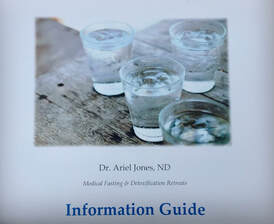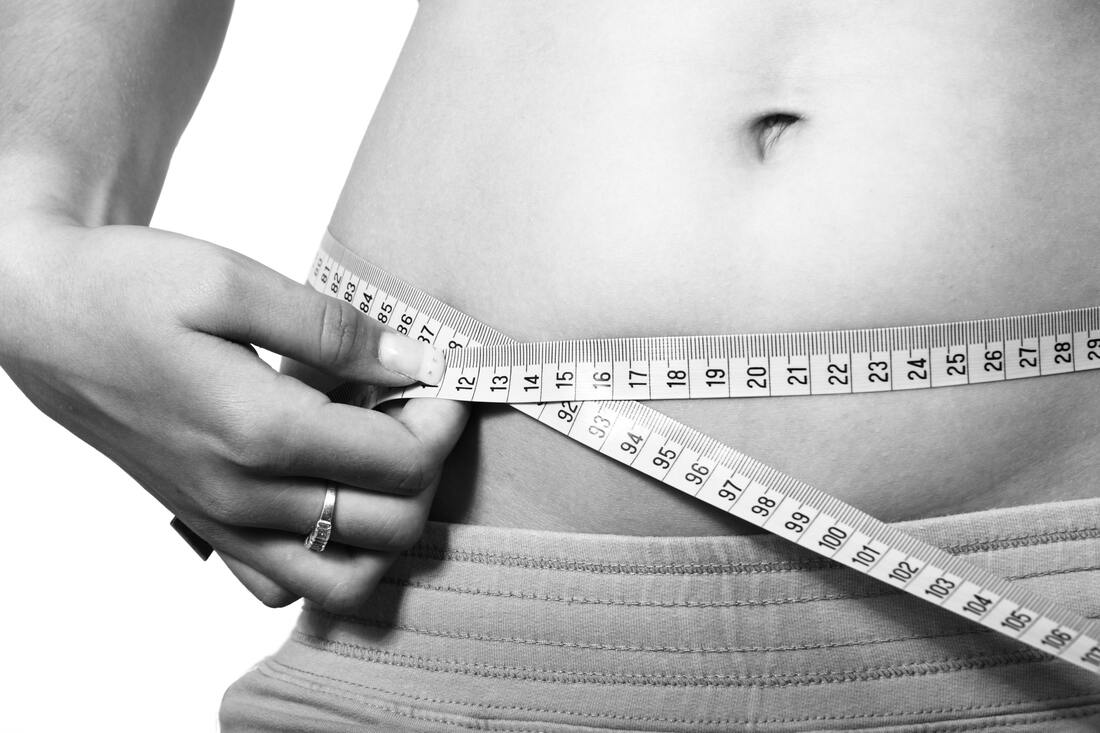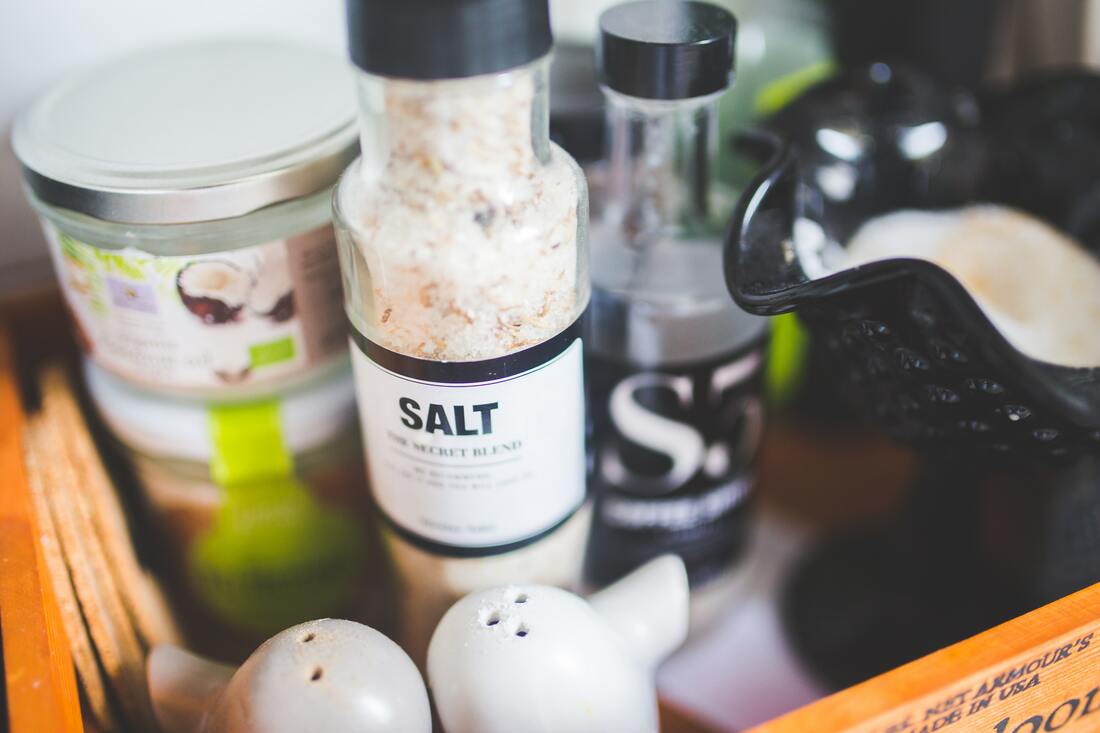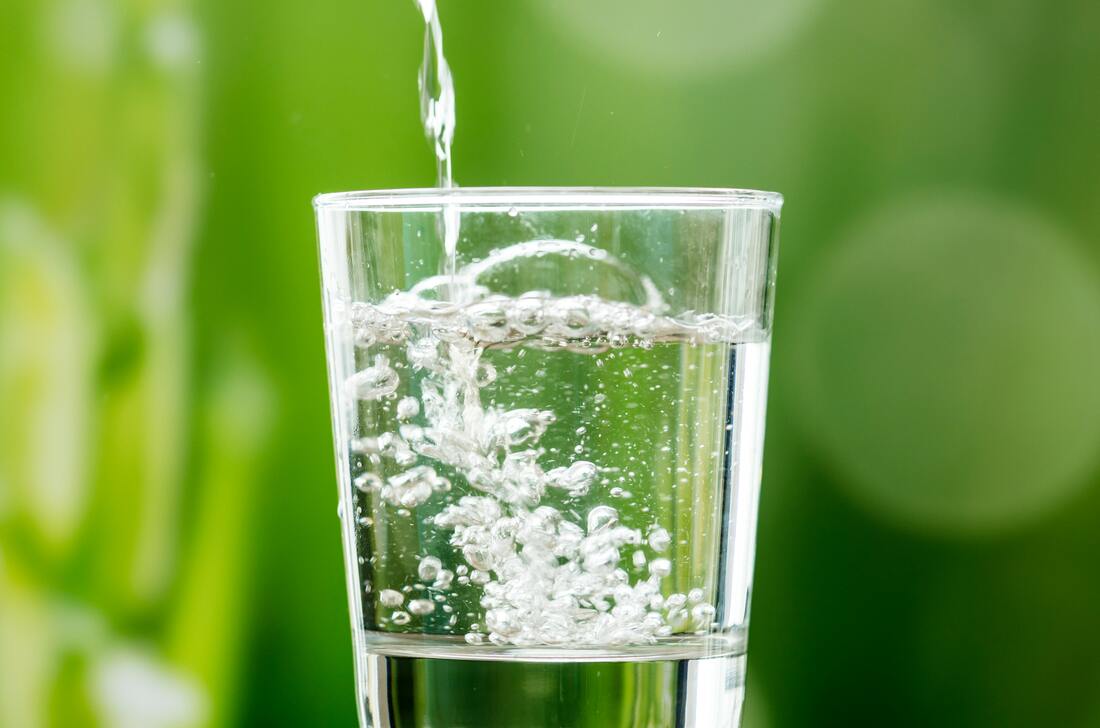|
There are a lot of questions about water fasting and lots of questionable answers floating around. We decided to interview Dr. Ariel Jones and find out her answers to the 5 most common questions related to water fasting. Do you have some you would like answered? Post them in the comments. 1. How much weight will I lose? Most people lose between 1 and 2 lbs early on in the fast. If there was inflammation prior to beginning that weight loss can be more in the first few days and usually tapers off. Towards the end of a fast, the weight loss can reduce to 0.5-1.0 lbs per day. The amount of weight and percentage of adipose tissue to skeletal muscle all depends on the weight and amount of fat you start out with. Thin people derive more of their energy during a fast from protein than an obese person does. Here's why: - Lean people derive 40% of their energy from protein during a fast and obese people 5%. -During prolonged fasting, fat oxidation accounts for approximately 94% of energy expenditure in obese subjects, compared to only 78% in lean subjects. Protein oxidation accounts for the remainder of the energy, since there is almost no carbohydrate stores left in the body after the first 24 hours or so. - Although an obese person has a larger amount of protein based on size, the physiology of fasting favors the destruction of adipose tissue. In the absence of adipose, protein will be used to power the brain, heart and organ systems. Reference: https://www.ncbi.nlm.nih.gov/pubmed/10574520 2. Should I add salt to my water? Although there is much talk on facebook fasting groups about supplementing with electrolytes or specifically Himalayan salt, there should be no reason why someone would require salt in their water during a fast. In fact, it could even be detrimental. The kidneys are the organ in our body responsible for maintaining electrolyte balance in the body. It conserves sodium and potassium or wastes it depending on what the body needs. People with severe kidney impairment have a hard time balancing their electrolytes and aren’t good candidates for water fasting. Before beginning a water fast, thorough blood work should be done and reviewed by a fasting physician and again every 7 days to ensure the proper electrolyte balance is being maintained by the body. Fluctuations in calcium and potassium are of importance when it comes to heart functioning. Low or too high potassium and calcium can be a risk of cardiac infarction aka heart attack. 3. How much water should I drink? The suggested amount of water intake during our retreats is 2L per day of a pure water source. We recommend using reverse osmosis water as our number one recommended water source. Good quality water in the form of distilled water, purified, and spring water can be considered as well as Kangen or pH controlled water if done properly. We don’t recommend drinking anything other than water on a water fast in contrast to other fasting doctors who suggest coffee and herbal tea as an addition to water. There are potent and well documented effects of herbal infusions or the bitter action of coffee that are in stark contrast to the number one principle of water fasting, which is leaving the body alone to heal. It is through this process, of doing nothing, that the greatest healing and teaching is available. 4. How should I break my fast? Breaking a fast is arguably the most important part of the fasting process. Following a fast the gut has been left alone to heal, and what goes into it will determine whether the healing continues, and the proper gut flora is repopulated or not. Our water fasts are generally broken with the broth of 5 Element Soup and either a fresh, peeled vegetable such as cucumber or a juice fruit like watermelon. Fresh fruits and vegetables are filled with the live active enzymes a resting gut needs to break food down. And the nutrients, vitamins and minerals, to continue the healing process. The number of days of reintroduction should be around half the number of days spend in active fast. For some people, they will chose to, or require a slower reintroduction. With a delayed introduction of allium species e.g. garlic and onion because of their corrosive volatile oils which can damage the sensitive gut lining. The process of reintroduction progresses from liquids and broths to mono meals of fruits and peeled vegetables the size of your fist, to steamed vegetables. And from steamed vegetables to complex vegetarian meals 3 times a day. Each meal can be accompanied by the 5 Element broth for nutrition and warmth. One of the side effects of fasting is lowered body temperature. People enjoy having a warm cup of broth to warm up their system and encourage digestive fires, also known as Spleen Qi in Traditional Chinese medicine. No salt or strong herbs or oils are used during the reintroduction but can be added in progressively. Avoiding high calorie foods like nuts is suggested so that weight is not put on too quickly. Maintaining a vegetarian diet for as long as possible is recommended. For people looking to continue their healing a raw food diet can be implemented with similar benefits, at a slower rate, compared to water fasting. 5. How long should I fast for? Water fasting length is different for each individual depending on many factors such as comfort level with fasting, disease state prior to fasting, medications, and health goals. The length of time you should fast for can be determined in consultation with a qualified fasting doctor. It take women 48 hours to enter into ketosis and 72 hours for men, generally speaking. Every day of a water fast offers immense healing compared to any other treatment modality available. Some conditions have been treated commonly with water fasting and their recommendation is as follows: 3 days – Full regeneration of the immune system, reduced blood pressure, digestive discomfort 7 days – Hypertension, Hypercholesterolemia, 10 days – Osteoarthritis, SIBO (small intestinal bacterial overgrowth), IBS, migraines, chronic pain 14 days – Fibroids, 21 days – Autoimmune disease: Rheumatoid arthritis, Lupus, Crohn’s, Colitis, These suggested number of days doesn’t mean that a shorter fast won’t significantly improve your condition. There is also credibility for practicing sequential shorter fasts as well as a fasting-mimicking diet, also known as intermittent fasting.  For full details on how to break a fast, prepare for a fast, what to expect and what to do during fasting check out our water fasting guide available here.  For a recommendation specific to your case, consider a consultation with Dr. Ariel Jones. Available online and over the phone.
1 Comment
8/31/2021 11:34:01 pm
Thank you for sharing this very informative content I read a lot of importance's to live longer by taking self care by drinking food supplements daily. I also recommend Haarlem Oil made from France. It can help to boost your immune system to fight against viruses.
Reply
Leave a Reply. |
Archives
May 2019
Categories
All
|





 RSS Feed
RSS Feed